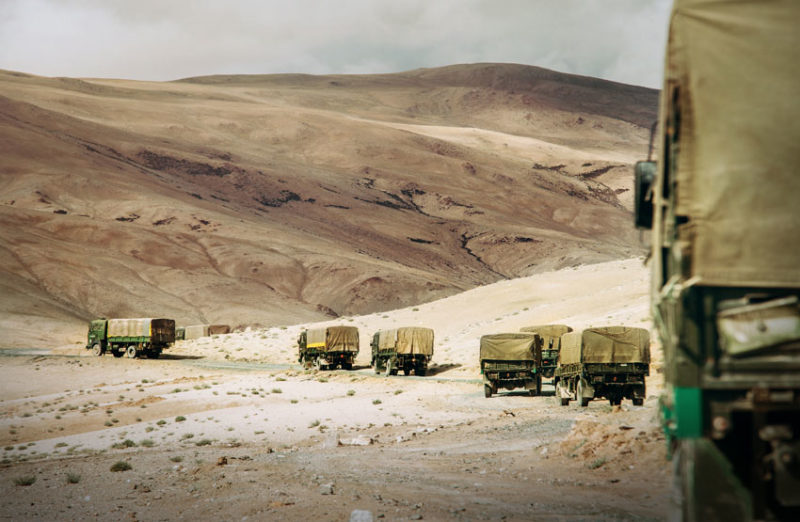India this Week: Kashmir Valley Headways & Challenges
Indian Army Trucks seen in the state of Jammu and Kashmir.
India is facing the test of times as it moves to allay concerns of its lockdown of people and politicians in Kashmir for peaceful abrogation of Article 370 as it fascinatingly frustrated China’s call to pronounce on Jammu and Kashmir, behind closed doors, against itself, writes Priyanka Bhardwaj.
Sensing the probability of a perverse neighbor, Pakistan, triggering violence to obfuscate its plans, New Delhi unequivocally declared its readiness for a war and “first use nuclear policy,” if need be, departing from its earlier stance of “no first use” of nuclear weapons that has undeniably raised heckles if not alarm amongst the global fraternity.
Termed it a costly and unstable affair, it justifies the tough image of the Modi government that enjoys the security of a massive stock of nuclear arsenal and missiles, strong intelligence and reconnaissance capabilities, and a sophisticated command and control system, along with deepening political emphasis on India’s triangular nuclear dynamics with Pakistan and China, with the downsizing of erstwhile Jammu and Kashmir, and its full integration with the Indian Union.

This means a shift from dialogues of past that yielded no clear dividends and of nuclear blackmail by Pakistan to the front foot, of resuming talks only when the recalcitrant state ends terrorism and accepts the new realities.
Regardless of recent victories on its bold initiatives, the government needs to embark on a transition phase, of vesting ownership of democratic processes and development to the region’s peoples, relay its policy shift in response to external threats to ensure continued international support while facing the challenges of raising security restrictions on the state and curbing the chances of any militant outbreak, all of which should move towards a better normal.


